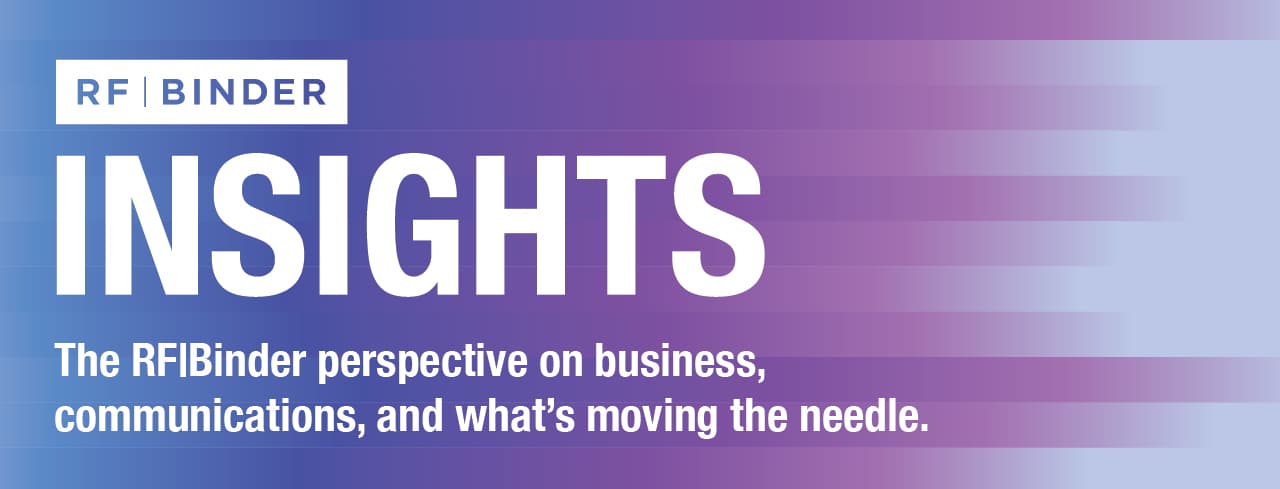Coming out of Earth Month in April marks an important time for brands to reflect and consider how they communicate about their sustainability strategies and practices, from reporting on carbon emissions for Scopes 1, 2 and 3 to supporting workers.
Our world has shifted to a place where sustainability is decidedly mainstream, where consumers are more aware of a product’s sustainability claims than ever before, and it’s reflected in their spending habits. A recent McKinsey study examined the rate of sales growth for CPG companies both with and without ESG-related claims over a five-year period from 2017-2022 and found a material link between brands with ESG-related claims and consumer spending. This finding underscores how today’s shoppers are increasingly interested in brands that are environmentally and socially responsible.
For today’s food and beverage brands, this information is hugely important; not only are consumers demonstrating a willingness to pay for more sustainable products, they are also elevating their expectations of brands. Another recent study from Glow, a NielsenIQ partner, surveyed 33,000 U.S. consumers on their switching behavior with food and grocery brands that have strong sustainability credentials. Some key data points include:
- 9 in 10 consumers believe it is important today for businesses to act in a socially and environmentally responsible way. 4 in 10 Gen Z and Millennial consumers believe it is very important.
- 1 in 3 millennials rank ESG/Sustainability in the top 3 purchase drivers.
- 50% of consumers say they’ve changed food and grocery brands based on perceptions of a brand’s ESG performance.
It is clear that current consumer attitudes appear to favor products with solidified sustainability benefits, representing a real opportunity for brands. So, how can they capitalize on this insight?
As one of the leading food and beverage PR firms, at RF|Binder, we believe in the importance of clarity, which includes a defined sustainability and ESG communications strategy. When you clearly communicate about your sustainable benefits, practices, and goals, you can capture more consumers, inspire trust and brand loyalty, and have more impact in the areas most relevant and meaningful for your brand and your business.
Let’s explore the five things that brands should keep in mind to communicate their sustainability benefits and meet consumer expectations.
- Keep clarity at the center. Sustainability can be full of jargon and phrases that aren’t well defined. Take the time to spell out what your benefits mean in coherent and concise terms, but be careful not to oversimplify for those savvier consumers. For example, Unilever has dedicated thought leadership content that defines regenerative agriculture, a big sustainability buzzword that isn’t always easily understood, and explains how the company leverages this approach.
- Make sure you highlight where you stand out. Brands are leaning into sustainability to differentiate themselves but make sure you understand what separates you from your peers. Once you have figured out your white space, make sure that point of differentiation is carried through in your messaging across all platforms and to all target audiences. Aside from having a sustainable production process for making ice cream, Ben and Jerry’s consistently speaks out on issues of social justice and encourages consumers to take action.
- Use your sustainability benefits to educate. Even though consumer awareness of sustainable benefits is at an all-time high, there is also an opportunity to explain what it truly means for food and beverage brands to be sustainable. For example, Bob’s Red Mill has developed a comprehensive and easy-to-understand infographic for consumers that highlights its sustainability efforts and carbon footprint on the company website.
- Maintain authenticity in your messaging. Brands shouldn’t only be transparent about their sustainability benefits, but they should also ensure their messaging aligns with their vision and mission. Otherwise, brands run the risk of greenwashing or falling short of meeting consumer expectations. In fact, the Consumer Brands Association has recently urged the Federal Trade Commission to update its Green Guides, which serve to clarify the use of climate change claims such as “net zero” and “carbon neutral” so consumers aren’t being misled; this only reinforces how critical it is to be clear in your sustainability messaging.
- Engage with the right partners. Whether working alongside a non-profit organization or forging new commitments with a retailer in the spirit of collaboration, tapping the right partners can help amplify overarching sustainability messaging, as well as company goals. For example, Clif Bar has established a partnership with American Forests, as the company works to reduce its carbon footprint and achieve its zero waste commitments.
At RF|Binder, we’re passionate about working with food and beverage brands on their strategic positioning, especially when it comes to sustainability and ESG communications. If you’re looking to develop your brand’s sustainability communications, feel free to reach out at businessdevelopment@rfbinder.com.

